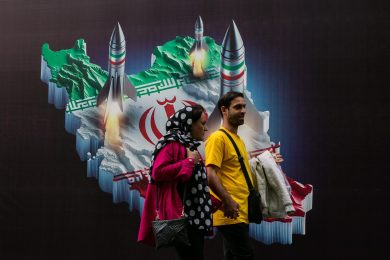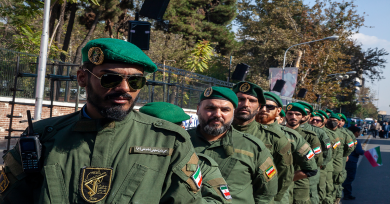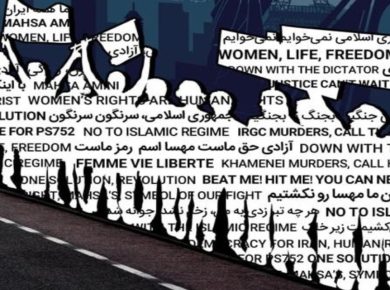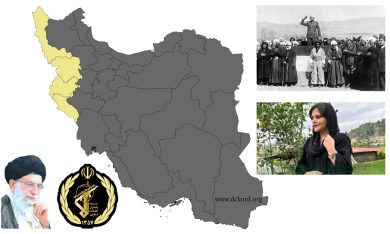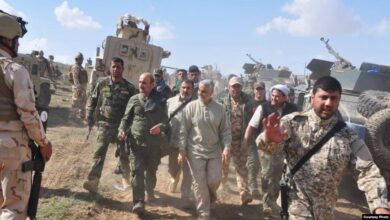Sanctions against the Islamic Revolutionary Guard Corps (IRGC) have been a core strategy used by the United States, European Union, and other global powers to curb Iran’s nuclear ambitions, regional destabilization, and human rights abuses. The IRGC, designated as a Foreign Terrorist Organization (FTO) by the U.S. in 2019, controls vast portions of Iran’s economy, military, and intelligence operations. As a result, sanctions have targeted IRGC-linked businesses, financial networks, and military assets to limit its power and influence.
However, the question remains: Do these sanctions effectively weaken the IRGC, or do they primarily harm ordinary Iranians? While sanctions have restricted IRGC funding, they have also contributed to economic hardships, inflation, and unemployment for the broader Iranian population. This report explores the effectiveness of sanctions, their impact on the IRGC and the Iranian people, and potential alternative strategies for addressing IRGC threats.
1. The Purpose of Sanctions Against the IRGC
Sanctions are imposed on the IRGC for several key reasons:
A. Curbing Terrorism and Regional Destabilization
• The IRGC’s Quds Force provides weapons, training, and funding to terrorist groups such as Hezbollah, Hamas, and the Houthis.
• Sanctions aim to disrupt these financial flows, limiting Iran’s ability to fund proxy wars in Lebanon, Syria, Iraq, and Yemen.
B. Restricting Iran’s Nuclear and Missile Programs
• The IRGC plays a central role in Iran’s nuclear and ballistic missile development.
• Sanctions on Iran’s banking and energy sectors are designed to cut off resources that fund these programs.
C. Holding the IRGC Accountable for Human Rights Violations
• The IRGC and Basij militia are responsible for violently suppressing protests, imprisoning dissidents, and censoring free speech.
• Sanctions target IRGC officials and affiliated organizations involved in domestic repression.
2. The Impact of Sanctions on the IRGC
Sanctions have significantly affected the IRGC’s financial operations, making it harder for the organization to access global markets and fund its operations.
A. Disrupting IRGC Financial Networks
• The U.S. Treasury Department has sanctioned IRGC-linked banks, businesses, and shipping networks, restricting their access to the global financial system.
• Many IRGC-affiliated companies face asset freezes and transaction bans, reducing their ability to conduct international trade.
B. Reducing Iran’s Oil Revenue
• Iran’s oil exports, a key revenue source for the IRGC, have plummeted due to U.S. sanctions.
• Oil revenues, which once exceeded $100 billion annually, dropped significantly after the U.S. withdrew from the Iran Nuclear Deal (JCPOA) in 2018.
C. Limiting Military Funding for Proxies
• Sanctions have reportedly forced the IRGC to cut funding to groups like Hezbollah and Iraqi militias, impacting their ability to operate.
• However, Iran has turned to illicit smuggling and black-market deals to bypass financial restrictions.
D. Increasing Corruption and Illicit Activities
• The IRGC has adapted by expanding its control over Iran’s black-market economy, including drug smuggling, weapons sales, and illicit financial operations.
• This has made the IRGC more entrenched in Iran’s economy, benefiting its elite while ordinary Iranians struggle.
3. How Sanctions Affect Ordinary Iranians
While sanctions target the IRGC and government officials, they also have unintended consequences for Iran’s civilian population.
A. Rising Inflation and Cost of Living
• The Iranian rial has lost over 90% of its value due to financial restrictions.
• Food, medicine, and basic goods have become more expensive, affecting low-income families the most.
B. Unemployment and Economic Decline
• IRGC-controlled companies dominate key industries like oil, construction, and telecommunications.
• When these companies are sanctioned, workers lose jobs, even though the IRGC leadership remains financially stable.
C. Medical and Humanitarian Challenges
• While humanitarian aid and medicine are technically exempt from sanctions, financial restrictions make it difficult for hospitals to import critical supplies.
• Patients with cancer and rare diseases face severe shortages of essential drugs.
D. Strengthening the IRGC’s Grip on Power
• The IRGC uses sanctions to justify economic failures, blaming foreign governments rather than domestic corruption.
• Tighter economic conditions give the IRGC more control over industries and resources, reducing competition and consolidating power.
4. Case Studies: Successes and Failures of Sanctions
A. The “Maximum Pressure” Campaign (2018-2021)
• The Trump administration’s withdrawal from the JCPOA led to heavy economic sanctions.
• Success: Iran’s economy weakened, oil exports dropped, and IRGC-backed militias faced financial difficulties.
• Failure: Iran accelerated its nuclear program in response, enriching uranium at higher levels.
B. The 2015 Nuclear Deal (JCPOA) and Sanctions Relief
• The Obama administration lifted sanctions in exchange for Iran’s compliance with nuclear restrictions.
• Success: Iran temporarily reduced nuclear activities, and the economy improved.
• Failure: The IRGC redirected billions from sanctions relief to fund regional proxies, rather than improving civilian conditions.
5. Alternative Strategies to Address the IRGC Threat
While sanctions have been partially effective, additional strategies may enhance efforts to weaken the IRGC while minimizing harm to civilians.
A. Strengthen Sanctions Enforcement and Close Loopholes
• Iran uses smuggling, cryptocurrency, and foreign intermediaries to bypass financial restrictions.
• Stronger international cooperation is needed to block these workarounds.
B. Target IRGC Leaders and Assets More Precisely
• Rather than broad sanctions on Iran’s economy, more targeted measures should focus on IRGC elites, freezing their overseas assets and restricting their financial networks.
C. Support Iranian Civil Society and Economic Independence
• Sanctions should exempt more private businesses to empower entrepreneurs outside of IRGC control.
• Providing internet access tools and support for dissidents can help counter IRGC oppression.
D. Increase Diplomatic Engagement with Clear Consequences
• A balanced approach that includes tougher diplomatic engagement may provide an alternative to broad sanctions that harm civilians.
• Conditional sanctions relief could be offered only if Iran scales back its support for terrorism.
6. Conclusion: Are Sanctions Against the IRGC Effective?
Do They Work?
• Sanctions have weakened the IRGC financially, limiting its funding for terrorist groups, nuclear development, and military expansion.
• They force Iran into negotiations, as seen in the 2015 JCPOA nuclear deal.
Do They Harm the People?
• Yes—while targeting the IRGC, sanctions also increase inflation, unemployment, and medical shortages for ordinary Iranians.
• The IRGC adapts by expanding corruption, while civilians suffer economic consequences.
What’s the Path Forward?
• Stronger enforcement of targeted sanctions on IRGC elites, not just the broader economy.
• Support for Iranian civil society to weaken the IRGC’s economic monopoly.
• Global pressure for diplomatic solutions, balancing sanctions with negotiation strategies.
Join Our Newsletter!
Stay informed with the latest updates, news, and ways to take action in the fight for justice and global security. Sign up now to get updates delivered straight to your inbox!

